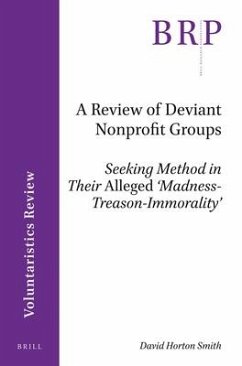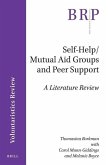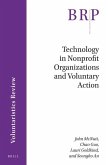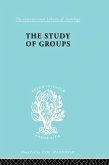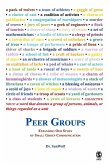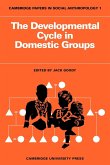This book studies the deviant form of Nonprofit Groups (NPGs), mainly volunteer-based associations, but occasionally paid-staff-based nonprofit agencies. A Deviant Nonprofit Group (DNG) is defined as "a Nonprofit group that deviates significantly from certain moral norms of the society" (Smith, Stebbins, & Dover, 2006, p. 68). The aim is to develop and present an empirically grounded theory with eighty-three hypotheses about many of the key analytical features or operational and structural characteristics of DNGs. Such DNGs were usually voluntary associations with memberships and usually run by volunteers, not nonprofit agencies without memberships and usually run by paid staff (Smith, 2017a). The total theory may be termed a Grounded General Theory of DNG Operation-Structure. The book is based on an extensive review and qualitative content analysis of about 260 published research documents representing twenty-five common-language (vernacular) purposive-goal types of DNGs (vs. analytical-theoretical types, which do not exist in detail). Moral norms are the broad, emotionally charged, customary directives concerning what is right and wrong, by which members of a community or society implement their institutionalized solutions to problems significantly affecting their valued way of life (Stebbins, 1996, pp. 2-3). All the grounded hypotheses reported here were supported by empirical evidence for at least one (often two) of the two or three specific DNGs studied for all DNG types in source documents. Indeed, all reported hypotheses were supported by most of the twenty-five DNG types studied, giving significant qualitative validity to the author's Grounded General Theory of DNG Operation-Structure. Such support suggests these hypotheses are valid at least sometimes for most DNG types and deserve further investigation. Collectively, the hypotheses of the present theory can be seen as a new theoretical paradigm for studying NPGs that helps bring analytical order to a previously chaotic realm of nonprofit sector deviant (rule-breaking) phenomena.
Hinweis: Dieser Artikel kann nur an eine deutsche Lieferadresse ausgeliefert werden.
Hinweis: Dieser Artikel kann nur an eine deutsche Lieferadresse ausgeliefert werden.

